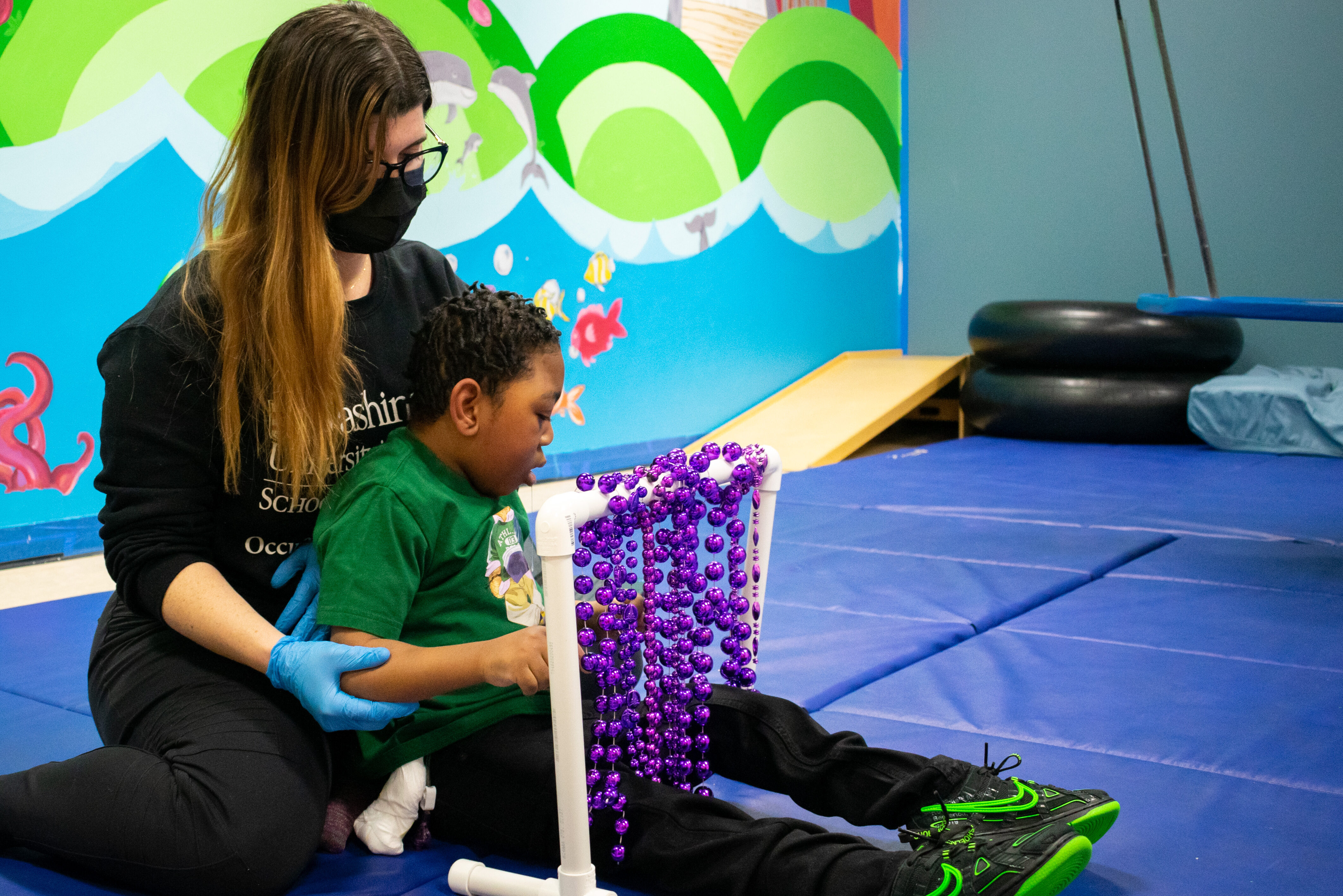Pediatric Vision Impairment

Please call (314) 286-1669 Opt. #1 to schedule an appointment.
Sight is one of our most important senses and any deficit in vision can affect a child’s ability to learn and engage in daily activities. Vision impairment includes diseases affecting the eye, optic nerve, and the brain. Depending on the affected area, diagnoses can be considered ocular or cortical/cerebral visual impairment. Ocular impairments result in individuals having difficulty seeing visual information due to damage, disease, or a condition affecting the eye structure and surround components. Individuals with cortical/cerebral visual impairment (CVI) have difficulty processing or interpreting visual information and it is caused by damage, disease, or a condition affecting the vision center of the brain and its associated pathways
Occupational therapists can help teach children and their family strategies to improve their ability to be successful at home, in school, and in the community. Occupational therapy services focus on increasing individuals’ access to their environment and increasing independence throughout their daily routines. Children and adolescents with ocular impairments benefit from treatment focused on modifications and compensatory strategies. Individuals with CVI benefit from treatment focused on establishing and restoring visual skills; over time, interventions, strategies, and adaptations can increase their perception of the visual world around them.
Below are some of the skills and strategies addressed within occupational therapy.
- Activities of daily living strategies including dressing, brushing teeth, bathing, and feeding.
- Sensory processing strategies, including strategies to support body awareness, build self-regulation skills, and tolerance of sensory input.
- Application of active learning strategies to promote fine motor skills for those with complex medical presentations
- Motor skill development to promote skills ranging from exploration, reaching, and grasping to handwriting and cooking.
- Development of pre-Braille skills, such as tactile discrimination and finger isolation.
- Executive functioning skills to support organization throughout a child’s daily routine.
- Social skill development to improve the ability to successfully interact with peers and family members.
- Safety strategies to support independence in cooking and meal preparation activities.
- Environmental modifications to increase a child’s visual access to their environment.
Our occupational therapists evaluate and treat children with visual impairments so that we can increase access and improve participation at home, school, and in the community. We look at each child’s unique abilities and work together with the child and their family to address any concerns and promote independence.
Please call (314) 286-1669 to schedule an appointment.